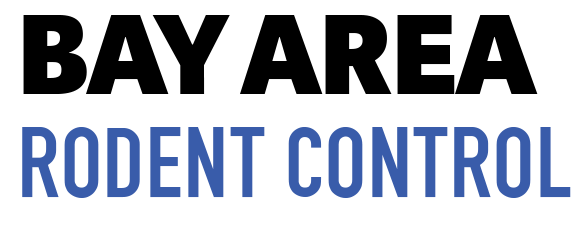Rodents such as rats and mice pose significant risks to your family and pets, ranging from property damage to serious health hazards. In the Bay Area, where rodent activity is common, taking proactive steps to protect your loved ones is crucial. From the diseases they carry to the dangers of rodent control measures themselves, understanding these risks is the first step to ensuring safety.
This guide explores the health risks posed by rodents and provides comprehensive strategies to protect your family, pets, and home.
The Dangers Rodents Pose to Families and Pets
Rodents are not only unsanitary but also destructive. Their presence can result in the following risks:
1. Disease Transmission
Rodents carry numerous diseases that can spread to humans and pets. These include:
- Hantavirus Pulmonary Syndrome (HPS): Spread through droppings, urine, and saliva, and can become airborne.
- Salmonella: Caused by food contaminated with rodent waste.
- Leptospirosis: Transmitted through contact with water or soil contaminated by rodent urine.
- Fleas and Parasites: Rodents often carry fleas, mites, and ticks, which can transmit additional diseases to humans and pets.
2. Allergies and Asthma
Rodent hair, droppings, and urine can exacerbate allergies and asthma, especially in children and sensitive individuals.
3. Physical Hazards
Rodents gnaw on electrical wires, posing a fire hazard, and can damage structural components of your home, such as insulation and wood.
4. Secondary Risks from Rodent Control Measures
Improper use of traps, rodenticides, or bait stations can unintentionally harm pets and small children.
Comprehensive Strategies to Protect Your Family and Pets
1. Secure Your Home Against Rodents
The first step to protecting your loved ones is preventing rodents from entering your home.
Seal Entry Points
- Inspect your home for cracks and gaps in walls, windows, doors, and foundations.
- Use steel wool, caulk, or hardware cloth to seal these openings.
Install Door Sweeps and Weatherstripping
- Prevent rodents from squeezing under doors or through loose window frames.
Use Rodent-Proof Storage
- Store food in airtight containers and avoid leaving pet food out overnight.
2. Maintain a Clean Living Environment
Rodents are attracted to food, water, and shelter. Reducing these attractants helps deter them.
Indoor Tips
- Clean countertops and floors daily to remove crumbs and food debris.
- Regularly empty trash bins and use bins with secure lids.
- Vacuum regularly to eliminate potential nesting materials, such as paper and fabric scraps.
Outdoor Tips
- Remove yard debris, such as piles of leaves or wood, where rodents can nest.
- Harvest ripe fruits and vegetables promptly and clean up fallen produce.
3. Safeguard Pets from Rodent Risks
Pets are at particular risk from rodents and rodent control measures. Protect them with these strategies:
Prevent Disease Transmission
- Keep pet food in sealed containers and feed pets indoors whenever possible.
- Clean water bowls regularly to prevent contamination from rodents.
Protect Pets from Traps and Rodenticides
- Use tamper-resistant bait stations and place traps in areas inaccessible to pets.
- Opt for pet-safe rodent control methods, such as ultrasonic repellents or natural deterrents like peppermint oil.
Monitor Pet Health
- Watch for symptoms of rodent-borne diseases, such as lethargy, vomiting, or unusual behavior, and consult a veterinarian if needed.
4. Educate Your Family
Teach all household members, especially children, about the dangers of rodents and how to avoid exposure.
Tips for Kids
- Avoid touching or handling rodents, alive or dead.
- Report any sightings of rodents or droppings to an adult immediately.
Tips for Adults
- Handle rodent cleanup with care, using gloves and disinfectant to safely remove droppings, urine, or nesting materials.
- Keep cleaning supplies and rodent control products out of reach of children.
5. Use Professional Services for Severe Infestations
For persistent infestations, consider hiring a professional pest control service to ensure thorough removal and preventive measures. Professionals can also provide pet-safe and eco-friendly solutions tailored to your needs.
Advanced Safety Measures for Rodent Control
- Install Smart Rodent Traps: These devices notify you when a rodent has been caught, minimizing risks to children and pets.
- Utilize Motion-Activated Repellents: These humane devices scare rodents away without harmful chemicals.
- Regular Home Inspections: Schedule periodic inspections to identify potential rodent activity early.
Ensuring Long-Term Safety
Rodents are persistent pests, but with vigilance and the right strategies, you can protect your family and pets from their dangers. By sealing entry points, maintaining cleanliness, using pet-safe control methods, and educating your household, you can create a safe and rodent-free environment.
Your loved ones deserve a healthy, secure home. Take proactive steps today to minimize risks and prevent future infestations.
Relevant Links/Sources:
CDC: Protecting Pets from Rodents
UC IPM: Rodent Prevention for Families
National Pest Management Association: Pet-Safe Rodent Control
